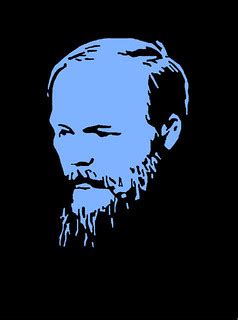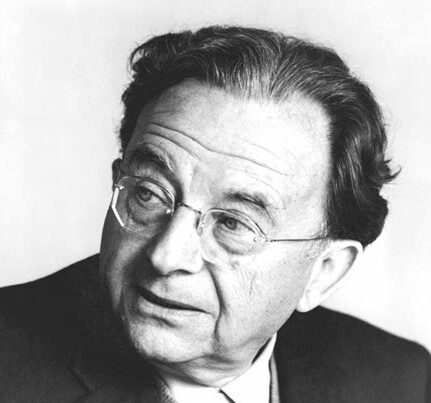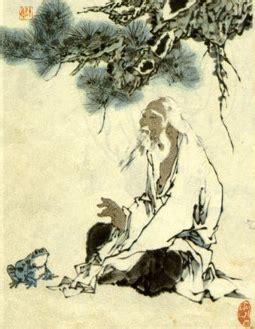Friedrich Nietzsche once remarked that Dostoevsky was the only psychologist from whom he had something to learn. This is no small praise, coming from one of the most influential philosophers of the 19th century. Dostoevsky’s insights into the human condition are as relevant today as they were when he wrote them. His novels explore the themes of morality, existentialism, human nature, and spiritual redemption in a way that is both thought-provoking and deeply moving.
Dostoevsky’s tumultuous life, characterized by personal struggles, greatly influenced his literary works. Born in Moscow in 1821, he faced financial difficulties, turbulent family relationships, brushes with death and imprisonment, as well as gambling problems. These experiences provided him with profound insights into the human condition, which are reflected in the psychological depth and authenticity found in his writings.
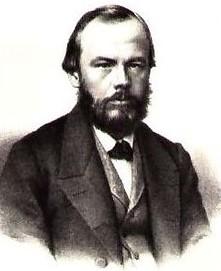
Dostoevsky’s work is often characterized by its exploration of the dark side of human nature. His characters are often deeply flawed, struggling with issues such as guilt, sin, and redemption. However, Dostoevsky also shows us the potential for redemption in even the most broken of people. His novels are ultimately hopeful, suggesting that it is possible to find meaning and purpose in life, even in the face of suffering.
Dostoevsky’s philosophy delved into complex themes such as morality, existentialism, human nature, and the pursuit of spiritual redemption. He challenged prevailing rationalist philosophies, exploring the depths of human consciousness and the inner struggles that define our existence. His works often examined morality, faith, and the consequences of human actions.
Notes from the Underground, a novella by Fyodor Dostoevsky, delves into the themes of existentialism, free will, and the tension between rationality and passion. The protagonist, known as the Underground Man, represents a disillusioned and alienated individual who rejects societal norms and embraces his freedom to act irrationally. Through the Underground Man’s introspective monologues, Dostoevsky explores the complexities of human consciousness, the limitations of reason, and the inherent contradictions of human nature.
However, it is in The Brothers Karamazov that Dostoevsky’s exploration of profound themes reaches its peak. This magnum opus examines the intricacies of human relationships, the search for meaning, and the clash between faith and doubt. One notable chapter, “The Grand Inquisitor,” delves into the complexities of human freedom, empathy, and the struggle between the individual’s desire for autonomy and the allure of societal control in the most profound terms.
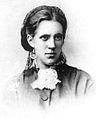
In “The Grand Inquisitor,” Ivan, one of the novel’s main characters, presents a parable set during the Spanish Inquisition. The Grand Inquisitor, representing religious authority, confronts Jesus Christ, who has returned to Earth. The Inquisitor argues that humanity cannot bear the burden of freedom, as it leads to suffering and rebellion. He suggests that a hierarchical structure, with the Church as the guiding force, is necessary to ensure order and comfort for the masses. Through this parable, Dostoevsky explores the complexities of human nature, the tension between individual freedom and the desire for security, and the power dynamics inherent in societal structures.
In The Brothers Karamazov, one of the four masterpieces that Fyodor Dostoevsky wrote after his exile in Siberia, as well as in his other works, Dostoevsky delves into the depths of human frailty, exposing the internal struggles, conflicting desires, and moral dilemmas that shape our actions. He portrays characters who grapple with their own weaknesses, wrestle with their conscience, and strive for redemption. Through his intricate characterizations and philosophical explorations, Dostoevsky illuminates the complexity of the human condition and invites readers to confront their own inner turmoil.
In Demons, one of Fyodor Dostoevsky’s four masterpieces, he explores themes of revolution, nihilism, and the destructive power of some ideas. He delves into the complexities of human nature, depicting characters driven by their passions, desires, and inner demons. As the story unfolds, the boundaries between good and evil blur, revealing the dark and destructive forces that can be unleashed when ideology becomes fanaticism. Through intense psychological exploration, Demons presents a thought-provoking exploration of the human psyche, societal decay, and the consequences of unchecked ideologies.
Crime and Punishment, one of Fyodor Dostoevsky’s four masterpieces, follows the tormented protagonist, Raskolnikov, a poverty-stricken former student who commits a heinous crime. Set in 19th-century St. Petersburg, the book explores themes of guilt, redemption, and the complexities of human conscience. Through Raskolnikov’s inner turmoil and his encounters with other characters, Dostoevsky delves into questions of morality, punishment, and the boundaries of human morality. With its psychological depth and examination of moral dilemmas, Crime and Punishment stands as a timeless exploration of human nature and the consequences of our actions.
In The Idiot, Fyodor Dostoevsky introduces Prince Myshkin, a character of remarkable beauty, simplicity, kindness, and a genuinely good heart. Often considered Dostoevsky’s alter ego or embodiment of his best self, Prince Myshkin stands as a beacon of purity amidst the complexities and moral decay of society. As the story unfolds, Prince Myshkin’s innate goodness disrupts the lives of those he encounters, highlighting their flaws and contradictions. Through this portrayal, Dostoevsky explores the contrast between Prince Myshkin’s genuine goodness and the destructive forces of societal expectations and human weaknesses. The Idiot serves as a poignant exploration of the challenges faced by a virtuous and innocent soul in a morally fragmented world.
Fyodor Dostoevsky continues to be relevant in our times due to the enduring themes and profound insights present in his works. Dostoevsky’s exploration of human nature, morality, existentialism, and the complexities of the human psyche resonates with contemporary readers and offers valuable perspectives on the human condition.
Dostoevsky’s profound influence can be seen in the realms of literature, psychology, philosophy, and social commentary. His examination of moral dilemmas, guilt, and redemption in works like “Crime and Punishment” and “The Brothers Karamazov” has had a lasting impact on literature and continues to inspire new generations of writers. Psychologists, including Sigmund Freud and Carl Jung, were influenced by Dostoevsky’s deep psychological insights and his ability to delve into the darkest recesses of the human mind.
Moreover, Dostoevsky’s exploration of existential themes, such as the search for meaning, the nature of faith, and the existential crises faced by his characters, continues to resonate with individuals grappling with similar questions in the modern world. His portrayal of complex characters with their inner conflicts and contradictions serves as a mirror reflecting the complexities of human nature and societal issues that persist today.
Dostoevsky’s examination of social and political realities, his critiques of nihilism and radical ideologies, and his exploration of the ethical implications of individual actions are highly relevant in contemporary society. The examination of moral responsibility, the dangers of fanaticism, and the impact of societal conditions on individuals are topics that still demand our attention.
Dostoevsky’s profound insights into the human psyche, his exploration of moral and existential dilemmas, and his social critiques make him a timeless and relevant figure. His works offer valuable perspectives on the human condition, serving as a source of reflection, inspiration, and contemplation in our ever-changing world. Engaging with his novels allows us to delve into the depths of human nature, explore themes of freedom, empathy, goodwill, and understand the complexities of the human condition in our modern world.

